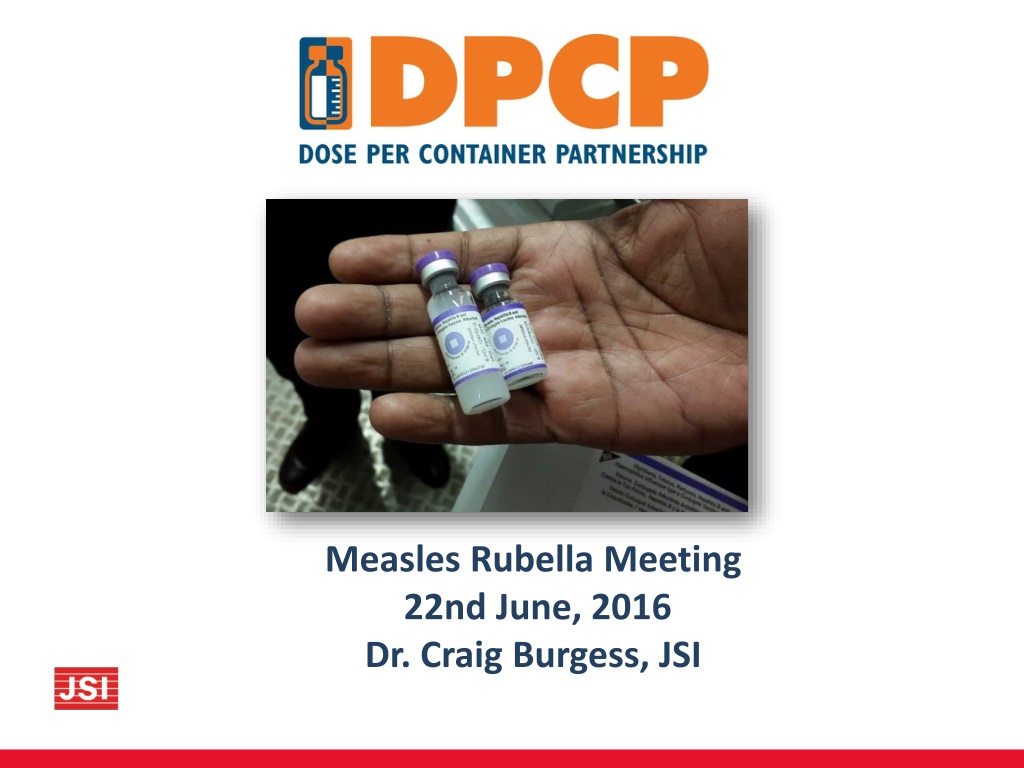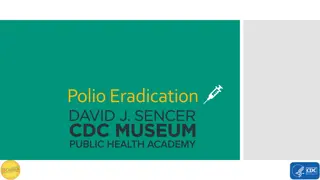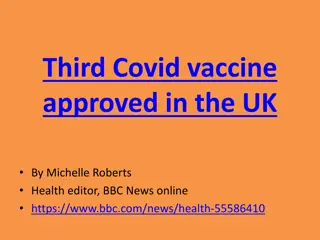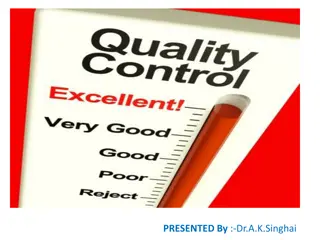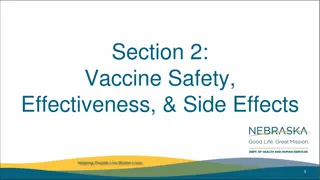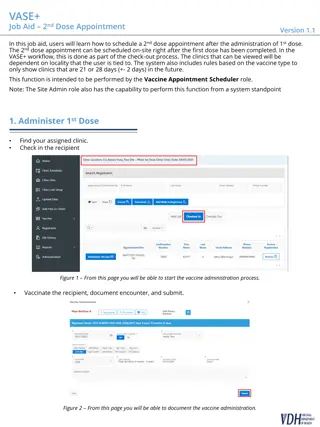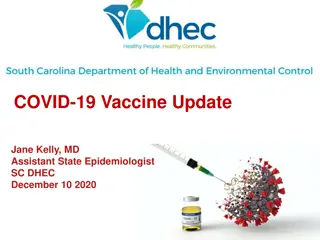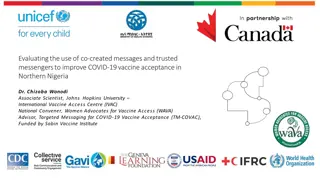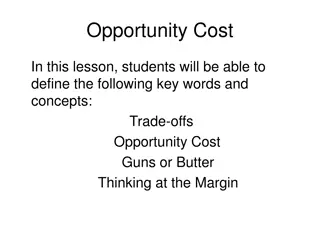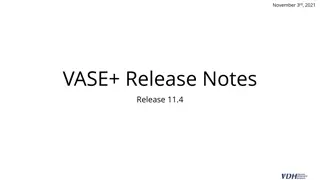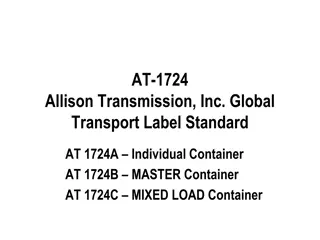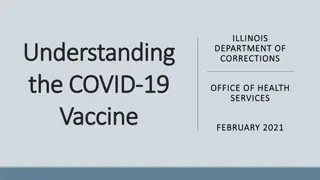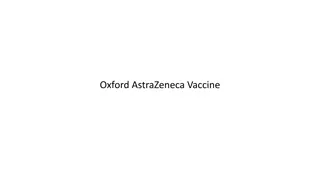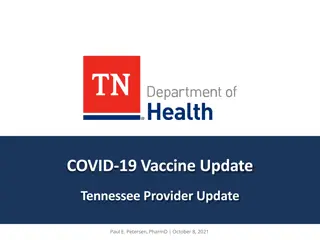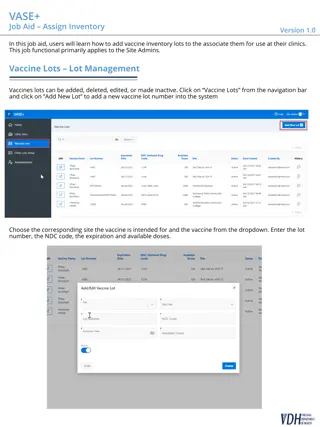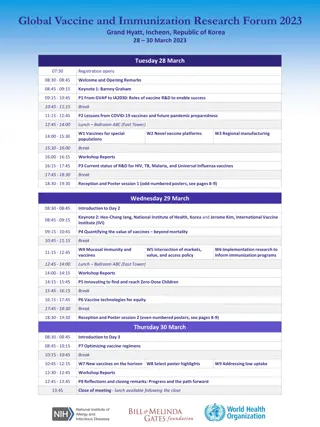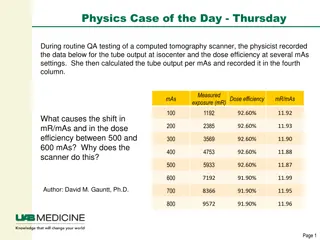Understanding Trade-offs in Multi-Dose Containers for Vaccine Distribution
In a measles and rubella meeting in June 2016, Dr. Craig Burgess discussed the impact of Multi-Dose Containers (MDCs) on system performance and cost trade-offs. The phases involved evaluating evidence gaps, considering factors like price per dose, health system impact, and wastage rates. The analysis aimed to inform global and country-level decisions, focusing on balancing costs with system effectiveness. Phase 2 focused on documenting current practices and changes in doses per container, aiming to guide decision-makers in product selection and forecasting.
Download Presentation

Please find below an Image/Link to download the presentation.
The content on the website is provided AS IS for your information and personal use only. It may not be sold, licensed, or shared on other websites without obtaining consent from the author. Download presentation by click this link. If you encounter any issues during the download, it is possible that the publisher has removed the file from their server.
E N D
Presentation Transcript
Measles Rubella Meeting 22nd June, 2016 Dr. Craig Burgess, JSI
Overview Multi Dose Containers (MDCs): framing the issue & trade offs considered Phase 1: April Oct 2015 Phase 2: Dose Per Container Partnership (DPCP) Nov 2015 December 2017 Broader context
Framing the issue DPC changes impact system performance MDC can decrease price & cold chain storage But: new vaccines > expensive: may increase reluctance to open vial for every child More evidence needed for global & country decisions on DPC trade-offs between costs & system impacts (coverage)
Phase 1: April Oct 2015 Summarizing evidence gaps: Evaluation of existing data and highlighting gaps in data and processes for decision making Methods: Literature review, informal surveys, key informant interviews, and stakeholder meeting Partnership: Creation of informal network of interested partners
MDC trade-offs considered for assessment Evidence to better understand & inform decision making: Price per dose purchased Cost & impact on health system (coverage) Supply / cold chain / volume per dose Decision on when to open / risk of contamination Wastage rate Shifting burden to HCW Communication
Illustrating trade offs Total system effectiveness analysis provides a framework for evaluating trade-offs of a vaccine or intervention.
Phase 2: DPCP Nov 2015 Dec 2017 Gather data and document current practices / policies / systems for deciding how many doses per container Changes in system: Coverage (equity, timeliness, session size) Wastage rates Cost benefit Safety Cold Chain, Supply Chain and distribution capacity Healthcare worker behaviour & needs Document effect of these changes Changes in Doses per Container: Tanzania & Senegal MR & Birth dose HepB # dose per vial Evidence used to: 1. Inform global processes & supply for doses per container (multiple antigens) 2. Country level guidance & tools: produce a simple and easy to use tool that outlines the tradeoffs that are considered when making product selection decisions, demonstrates best practices and guides decision makers for product forecasting, planning, selection and ordering
Work Stream 1 Document & assess national policies and processes for decision-making, including product selection, quantification, ordering, and financing 2 country case studies to understand historical decisions Key stakeholder interviews Looking at existing tools to inform decision making Documentation of when and how DPC is part of regular processes
Work Stream 2 Prospective implementation research SENEGAL TANZANIA Measles-Rubella @ 9 & 18 months Antigen Hep B @ birth (co-coverage BCG) 10 (liquid - Crucell) to 1 (liquid - LG Life Sciences) 10 (lyophilized - SII) to 5 (lyophilized - SII) Vial dose change 2 regions: 8 districts (4 control; 4 intervention) 125 HFs (62 in control arm; 63 in intervention arm) 3 regions: 7 districts 246 HFs (123 in control & 123 HFs in intervention arm) Districts / Sample Size Vaccinated target population 40,627 130,000 Lead PATH and MOH JSI and MOH
Work Stream 2 Prospective implementation research Vaccine purchase costs, cost per dose and total systems costs, equitable & timely coverage, open vial vaccine wastage, immunization session & frequency, logistics storage & distribution capacity & costs, missed opportunities, drop out rate, safety & HCW behavior. Systems aspects 12 month retrospective data collection. Field based implementation research with one intervention and one control arm. Pre- and post- cross sectional design to measure difference in qualitative and quantitative indicators between arms. Key informant interviews, observing HCW behavior, registers, data collection tools, cold chain assessment, registers & quantitative data collection tools. Methodology & tools
Work Stream 2 August 2016: baseline data collection September 2016 August 2017: implementation / introduction & monitoring new presentation September 2017: end line data collection
Work Stream 3 Coordination: partners, links to others (eg. CDC, industry) Modeling: with HERMES & others Communication: website, results, TechNet, GIN, via partners & TAG Cost benefit Technical Advisory Group (TAG): broad range of 8 individuals, objective strategic guidance (incl. WHO / UNICEF SD / GAVI / industry & countries)
End Results Global stakeholders: evidence filling critical knowledge gaps in analysis and policy making processes, guiding stakeholders to make informed, sustainable decisions on DPC when considering vaccine products and program designs Country stakeholders: Produce easy-to- use and -understand guides & tools to assess DPC tradeoffs, including cost and systems impact to inform vaccine product selection.
Broader context Ethiopia study Wastage studies: Cambodia 2013 & Nigeria 2012 (issues on MCV MDVP), Ghana and possibly Fiji HERMES Benin / Mozambique MR / BCG / penta vial size: wastage & supply chain Industry impact
References / contacts TechNet Dose per Container Partnership Group www.technet-21.org/en/network/groups/item/196-dose Sarah Melendez (sarah_melendez@jsi.com) Craig Burgess (craig_burgess@jsi.com) JSI website www.jsi.com/immunization
